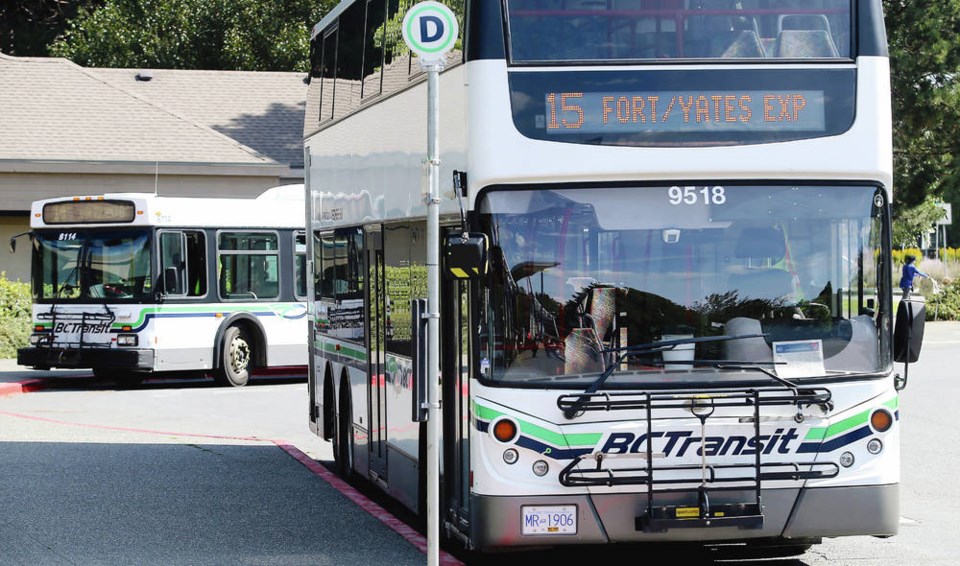The University of Victoria’s aging bus exchange will be upgraded and B.C. Transit will get 15 new buses, thanks to a joint funding announcement Tuesday from the federal and provincial governments.
Emily Lowan, director of campaigns and community relations for the UVic Students’ Society, welcomed the news about the exchange.
Lowan said that post-secondary students are the largest single demographic among transit users.
“One-third of UVic undergraduates rely on transit as their primary mode of transportation, using transit to get to campus, work and to run errands,” she said.
More than $4.9 million in federal money and over $4.5 million from B.C. are going to the two projects, with UVic and the Victoria Regional Transit Commission providing an overall total of $1.9 million.
Minister of Transportation Rob Fleming said that prior to the COVID-19 pandemic, the UVic bus exchange ranked second in transit destinations in Greater Victoria, with 55 buses going to and from the site every hour.
“With classes returning to in-person learning in September, we can expect those kinds of service levels to bounce back and be part of the fabric of UVic again, when we get past the pandemic.”
The exchange serves people living in surrounding areas as well as UVic, Fleming said, noting that it dates back to 1995.
B.C. Transit chief executive Erinn Pinkerton said she is looking forward to both the refurbished exchange and the new buses, set to start arriving in 2022.
“It’s these types of projects that make the future of transit in the Victoria region look promising.”
She said the new buses will run on compressed natural gas or natural gas, replacing diesel buses in the transit fleet.
“The introduction of medium-duty [compressed natural gas] buses is an important step in our low-carbon fleet program as we transition to a greener fleet,” she said. “We plan on transitioning our entire fleet to electric by 2040, so with every diesel bus that we can take off the road, we are getting closer and closer to that goal.”
The new buses will be quieter than their diesel counterparts, Pinkerton said.
She said the UVic exchange was expanded in 2015. About nine bus bays and six bus shelter will be enhanced this time, along with paving and new curbs. Safety and efficiency are vital at such a busy exchange, Pinkerton said.
UVic president Kevin Hall said the exchange will make a difference to a lot of people at the university. “It’ll help us reach our goal of having 70 per cent of all trips to and from campus being with sustainable modes of transportation.”
In a separate announcement on Tuesday, the Victoria Regional Transit Commission said the first of the fleet’s 11 new diesel double-decker buses is expected to enter limited service today, with the others expected in the coming weeks. Technology for such buses to be propelled by other means continues to develop.
The new double-deckers are replacing the first ones that came to the region 20 years ago. Eight more are scheduled to enter service later this year
The double-deckers are part of a $15.5-million project, with the federal and provincial governments each providing about 40 per cent of funding and the transit commission about 20 per cent.
The new buses include a USB port at each seat for charging mobile devices and a monitor at the bottom of the stairs to check seating availability on the upper level.



